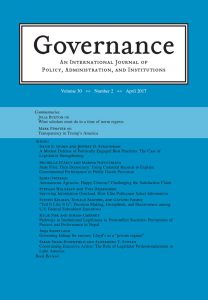Interview with Dr Sayaka Osanami Törngren, Associate Editor for Sociology Compass
Sociology Compass is delighted to welcome Sayaka Osanami Törngren as our new Associate Editor for the Race & Ethnicity section. Dr Osanami Törngren is Associate Professor in International Migration and Ethnic Relations, and Senior Researcher at Malmö Institute for Studies of Migration, Diversity and Welfare. The Associate Editor role at Sociology Compass is to lead on the commissioning of state-of-the-art review articles under dedicated subject areas. We took the opportunity to talk to Sayaka about her research background and aims for the race &...












1530-2415/asset/SPSSI_logo_small.jpg?v=1&s=703d32c0889a30426e5264b94ce9ad387c90c2e0)